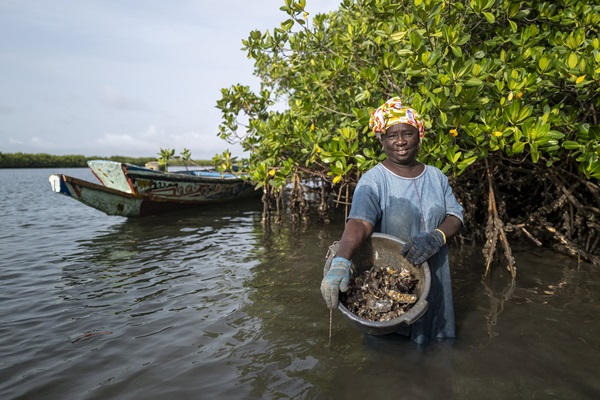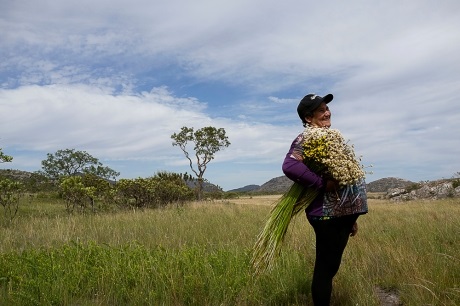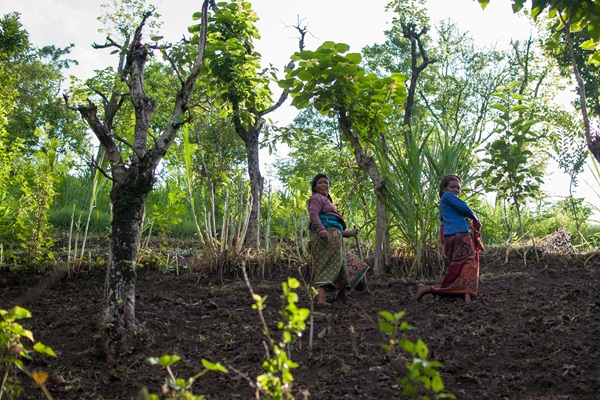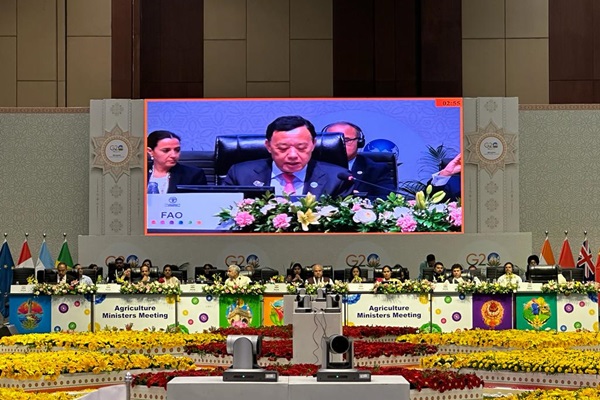News

Global effort to safeguard mangroves steps up
26/07/2023
The world is making progress towards ending the loss of mangrove forests, according to a new report from the Food and Agriculture Organization of the United Nations (FAO). Found on the coastlines of 123 countries worldwide, over 20 percent of mangroves are estimated to have been lost globally over the past 40 years, mainly due to both human activities and natural retraction. The World’s Mangroves, 2000–2020, launched today on the International Day for the Conservation of the Mangrove Ecosystem, reports that the total global area of mangroves in 2020 stood at 14.8 million hectares.

Five ways advancing sustainable agrifood systems promotes a healthy environment
25/07/2023
Agriculture has been around for more than 10 000 years. In that time, it has not only given us food, shelter, and livelihoods, but also knowledge, traditions, innovations and ecosystem services. However, with many ecosystems pushed beyond their capacity, agriculture now needs to provide all these benefits – and more – while being more responsive to the environment.

Global Environment Facility approves 26 FAO-led projects to transform agrifood systems into solutions for environmental challenges
27/06/2023
Rome - Building on growing momentum to tackle environmental problems by addressing the ways in which our food and fiber are produced, the Global Environment Facility has approved 26 projects led by the Food and Agriculture Organization of the United Nations. “To achieve the 2030 Agenda we need a healthy planet and healthy people. These projects will help countries conserve and use natural resources sustainably while providing nutritious diets and green and climate-resilient livelihoods and contribute to the implementation of the Kunming-Montreal Global Biodiversity Framework and the Paris agreement” said FAO Deputy Director-General Maria Helena Semedo, welcoming the greenlighting of the projects by the 64th Council Session of the GEF, held in on 26 June in Brasilia. The projects total $174.7 million in GEF funding and leverage $1.2 billion in co-financing.

G20 Agriculture Ministers: "Agrifood systems must be part of the solution to the biodiversity and climate crises," FAO Director-General says
16/06/2023
QU Dongyu addresses meetings in Hyderabad on topics including food security and biodiversity.

Breaking the plastic cycle in agriculture for biodiversity benefits
05/06/2023
Existing data suggests that only a small fraction of agricultural plastics is collected and recycled, while most are buried or landfilled, resulting in negative impacts to ecosystems, biodiversity and human health.

World Oceans Day must be Humans Day: FAO Fisheries chief
05/06/2023
Interview with the Director of FAO’s Fisheries and Aquaculture Division, Manuel Barange.
The term aquatic foods refers to the 3000 different species of fish, mollusks, crustaceans and algae that we catch, and over 650 species that we culture. According to the expert, it is a huge biodiversity that offers exceptional long-term food opportunities and renewable solutions, if managed properly. Furthermore, growing many of them has a much lower environmental impact than growing land-based animal production systems.
The term aquatic foods refers to the 3000 different species of fish, mollusks, crustaceans and algae that we catch, and over 650 species that we culture. According to the expert, it is a huge biodiversity that offers exceptional long-term food opportunities and renewable solutions, if managed properly. Furthermore, growing many of them has a much lower environmental impact than growing land-based animal production systems.

Life support: The Global Biodiversity Framework is a crucial step toward preserving our planet's ecosystems
01/06/2023
Biodiversity is the basis of life on Earth. We live biodiversity, we eat biodiversity and we are biodiversity. Without it, our world would be lifeless. The Earth's diverse ecosystems provide us with essential services, from clean air and water to food and medicine. In today's rapidly changing world, one of the most pressing challenges we face is the alarming loss of biodiversity.

Africa, Caribbean and Pacific Conference on the Implementation of the Outcomes of the CBD COP15 and Cites Cop19
01/06/2023
The African Union Commission through its Directorate of Sustainable Environment and Blue Economy (SEBE) will organize the Africa, Caribbean and Pacific High Level Conference on the implementation of the Outcomes of the Fifteenth Conference of the Parties (CoP15) to the United Nations Convention on Biological Diversity (CBD) and the Nineteenth Conference of the Parties (CoP19) to the Convention on the International Trade in Endangered Species of Wild Fauna and Flora (CITES).

2023 Globally Important Agricultural Heritage Systems (GIAHS) Certificate Award Ceremony and GIAHS Exhibition
22/05/2023
Since 2018, 24 new GIAHS in 12 countries have been designated. They represent not only stunning natural landscapes but also agricultural practices that create livelihoods in rural area...

Mongolia's livestock breeds, a precious part of global biological diversity
22/05/2023
Amidst the vast expanse of Mongolia's high altitude Great Plateau, a remarkable story unfolds - one of endurance, adaptation, and unwavering resilience. The nation's unique livestock breeds are a symbol of pride and a vital backbone of the country's economy. Today, on this International Day for Biological Diversity, we celebrate not only Mongolia’s livestock diversity, but also the herders that have developed and maintained them for thousands of years.
